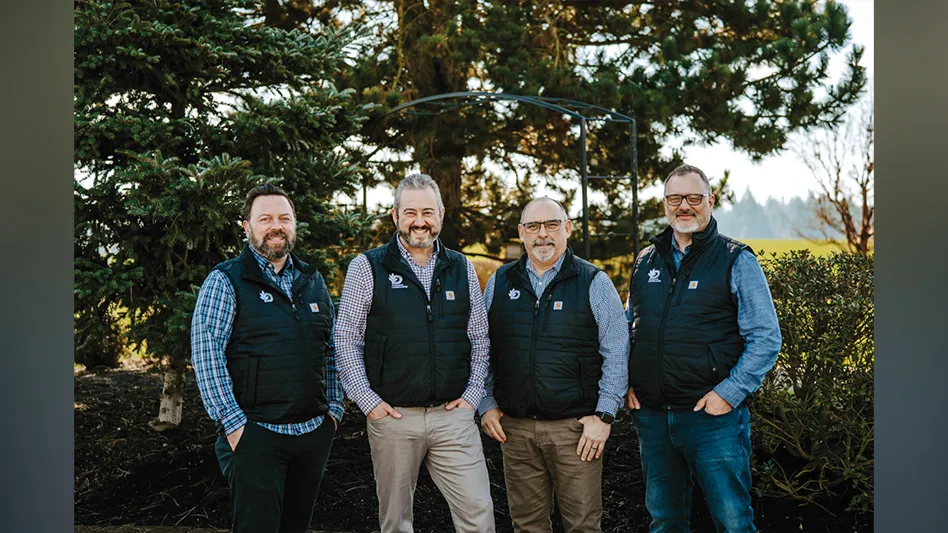It happens to nearly every landscape contractor. An irate individual calls your office and complains that you or your maintenance crew, while working at a nearby residential or commercial property, dirtied the finish on his or her car. Now, the vehicle’s owner wants you to deal with the problem, which can be very costly.
Operating in the wet Pacific Northwest, Pacific Landscape Management has, on occasion, splattered cars with grass and mud while mowing or edging a client’s property. Maintaining landscaping around parked vehicles is a Catch-22 situation for landscape contractors. If we stay clear, some of the landscape work or clean-up doesn’t get done and the client is unhappy. On the other hand, if we get too close to a parked vehicle, we run the risk of possibly splattering debris on it or even damaging the finish.
At first, we believed it was too difficult for us to be proactive in these situations since the owner is usually not around his or her vehicle at the time of the incident. Likewise, our tight schedule forces us to leave the job site before the car’s owner returns.
While it’s easy to instruct, train and warn workers to “be careful,” the truth is the closer we get, the more risk we are bound to take. In addition to training our employees to be more aware and careful we believe that proactive communication can also help in these situations.
In most cases we offered to have the individual’s vehicle washed, but by that point the person was agitated because he or she had to call us. And many times that individual wanted more than a car wash and demanded an expensive detail job or body work and paint.
However, we devised a solution that benefits both our landscape firm and the vehicle’s owner
During winter 2004-05 Ron Knesal, a partner and vice president, developed a simple and effective tool that serves as a solution to avoid the bad feelings and liability associated with these types of complaints. When surrounding vehicles are affected by our work, we now have the means to take responsibility and apologize, thereby diffusing any angry feelings and rectifying the situation.
To deal with this, Knesal created car wash notes, a sort of apology envelope that includes a car wash certificate, our business card and a note that states:
“We apologize for any inconvenience but during our work today, we got debris on your car. Please accept this car wash coupon as our apology. If a simple car wash does not satisfy you, please contact the supervisor listed on the enclosed card.”
Our workers place the envelopes under the vehicle’s windshield wipers when we accidentally splatter a car with lawn refuse so the owner immediately receives the apology, even if the crew is no longer on site.
Other than the $5 for the car-wash coupon, there are no other costs associated with offering this service. With 20 crews in the field, we estimate that over the course of the year we may hand out about 25 to 30 car wash cards for a total cost of only $125 to $150. That’s a lot cheaper than the cost for a single professional vehicle detailing.
Since introducing this policy, we receive very few irate calls anymore, and to my knowledge, no one has ever rejected an apology envelope. Our workers distribute the cards fairly often, and we receive very few complaint calls any more. The car wash notes have nearly eliminated people calling our offices demanding a new paint-job or professional detailing and, instead, accept the $5 car wash certificates. We’ve even had a few people call to thank us for the car wash.
We don’t generally consider this as a “positive” branding or marketing measure by our firm, since workers leave the apology envelope on a car of someone who is not directly our commercial client, but rather one of their tenants or customers. Instead, this does prevent us from inadvertently sending a negative message about our company to the community. Maintaining a professional image is easier if people in the community are not complaining about you. To date, though, I am not aware whether these packages have generated any new clients for us.
We try to train our crews to be courteous and responsible. This is an example of how powerful taking responsibility is in reducing problems.
The author is president of Pacific Landscape Management, headquartered in Hillsboro, Ore. He can be reached at 530/648-3900 or bob.grover@pacscape.com.

Explore the March 2007 Issue
Check out more from this issue and find your next story to read.
Latest from Lawn & Landscape
- Echo reveals blowers, mowers and more at Power-On-Athon
- Lake Zurich mayor honors Echo as green business
- Echo's sustainable regrind process
- Green Lawn Fertilizing/Green Pest Solutions names Willey as president
- ASV debuts VT-80 compact track loader
- Luke Williams joins Focal Pointe as CFO
- Ford debuts 2025 Ford F-Series Super Duty
- TCO for trimmers and edgers





